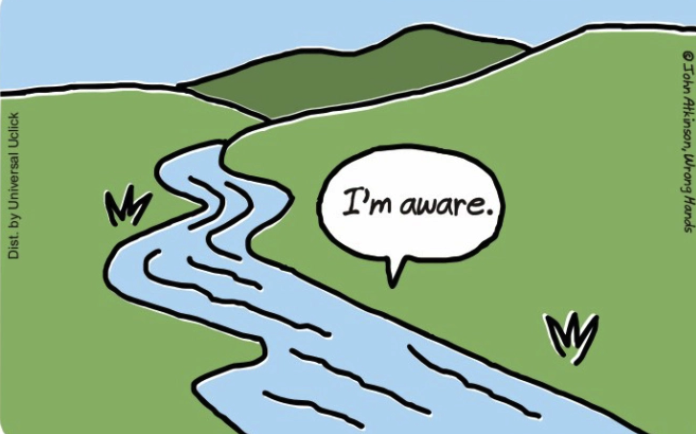I believe most Americans are patriots. No matter how much Americans may struggle with social injustice, economic crisis, or political disorder, the American dream has never left the conscious or subconscious of the United States. America has been defined in many ways: America is capitalism, America is xenophobia, America is militarism, America is hardworking, America is powerful, America is fast food, America is rich. America is all of these things at once, full of contradictions and full of infinite possibilities, whether negative or positive. This isn’t because of democracy, government, military, economy: it’s because of the people. America is an incredible, diverse group of people bonded under one nation. However, in today’s political culture across the world, people can be swallowed up by concepts.
A nation is a concept. The idea of a country is what keeps a people united, but a single idea cannot define a multitude of people. To think of the American people, or any country’s people, as a single unit, is a mistake. To disregard exceptions, however small, is a mistake. America was an exception under the British Empire, and that surely cannot be disregarded. Terrorist organizations are exceptions, but we cannot disregard al-Qaeda. However much we may fixate on negative exceptions, divergent positives cannot be disregarded either. While negativity clouds current news and history, the identification and validation of individualism betters public good.
Many can be quick to group countries under single stereotypes, however harmless. For example, Canada is nice, Russia is evil, Britain is posh, Afghanistan is terrorism. I could go on. The trend of overgeneralization is reinforced across media, from music to news outlets. I love political crime shows, which consistently present America’s current enemy as a fictional one. The Recruit centers its villains as Russians, while The Diplomat centers its plot on political corruption. Both shows are meant to highlight a current and relatable American issue, without being too politically divisive.
This becomes a problem because it blurs the line of political villainization across fiction and into reality; news articles or movie undertones cause a ripple effect through the consciousness of its consumers. After 9/11, and in the years following, media emphasis on Islamist terrorism led to vast Islamophobia within the states. Muslim-American communities were, and still are, less safe because of their connection to the defining conceptualization of al-Qaeda. Once a pathway is drawn between two things, in this case, an organization and the people surrounding it, it may never be undone. It would be naive to say that a part of a person, like their country, religion, or race, can be removed from an assessment of themselves, but no one idea defines a complex person. Can we begin to separate nations and peoples, not politically, scientifically, economically, or physically, but separate them emotionally?
I think about this dilemma often, especially when I encounter a new perspective. When I was in New Orleans after Russia’s invasion of Ukraine, my Uber driver was a Ukrainian married to a Russian. He was a kind man who was comfortable answering questions, sharing intellectual opinions not only on the politics but also the emotions that directly collided in his life. He shared that he and his wife argued about the developing war, both having loyalties deeply ingrained in their minds. Yet, at the end of the day, he recognized their equal grief for the Russian and Ukrainian lives lost in the war. For the couple, mourning the loss of lives was more important than debating the far away political conflict.
To offer another perspective, when I visited the Netherlands, my tour guide was a young woman from Belarus, soon to be stripped of her citizenship in favor of a Dutch citizenship. This was about a year after my trip to New Orleans, and the war in Ukraine had not (and still has not) ceased. When she shared her opinion on the war, she was not fixated on the international or economic issue of Russia having access to the Black Sea; she carried the stress of a potential conscription in Belarus that would force her father into the war. While Russia is wrong for invading and brutalizing Ukraine, some Russian families, civilian and military, are still suffering. I hesitate to show sympathy for a country whose government is, in my mind, an evil in our world, but I cannot hesitate to sympathize or, at the very least, pity their people who have, from the beginning of their country, never lived stable lives. A nation may be very, very wrong, but an entirety of its people cannot be wholly evil.
The biggest news story today is the Hamas-Israel conflict, a collision of political factions, religious ideologies, races, and historical imbalances. Israel is strategic as both a military and ideological ally for the United States, a fact that coats the popular cultural opinion of both sides of the conflict. As well, Islamic and Arabic countries, groups, and populations have been besmirched by America. In contrast, Israel is militarily superior and politically dominant compared to most Middle Eastern countries. I have noticed that because of this, people disregard the tragedies of Israel in favor of the tragedies of Gaza. I believe that a person can, and at a time, must take a political “side” in such an issue. However, I ask for the mourning of lives to be prioritized over the debates on an international affair that is generally intangible to most of its observers. To discuss an international affair is important, but to vehemently argue between sides with disregard of tragedy is not dauntless activism or necessary education. When nations collide and death occurs, as it almost always does, the tragedy is not the political conflicts but instead is the loss of life.
What I ask. What I propose is for the people to be separated from nations, not in patriotism or politics, but instead in emotion, for the sake of the individual. When facing trauma on the national scale, to see outside of the bounds of a nation allows for a truer emotional assessment of the toll of tragedy. Furthermore, when viewing a national issue from afar, to separate the population from their nation allows for an empathetic understanding of the tragedy. Nations and peoples may be emotionally separated while remaining connected in other respects, but we must be able to dissociate them. To maintain a separation of logic and emotion is an infinite human struggle, but when done, it allows for growth in the understanding of logic and emotion, and their ability to frame the scope of humanity.
Edited by Sunanya Guthikonda


